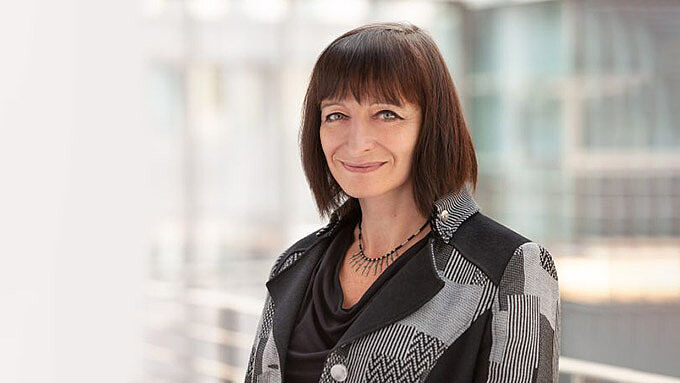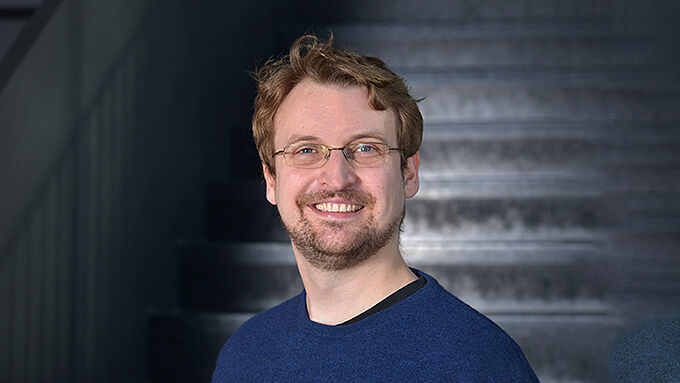![[Translate to Englisch:] [Translate to Englisch:]](/Dokumente/_processed_/2/c/csm_Gartenbau_9e4ce5a3ac.png)
Department of Horticulture
Are you green at heart? Then you're in the right place!
We are the Department of Horticultre and are part of an exciting professional field that provides the world with food and beauty. Our degree programs enable our graduates to pursue a wide range of careers, whether in production, research, trade or services.
Combining Ecology, Economics and Social Responsibility
Horticultural studies at the University of Applied Sciences Erfurt are practically oriented, providing students with academic knowledge and the opportunity to put it into practice. The B.Sc. degree in Horticultural Crop Production is designed to qualify students for management positions in horticultural businesses and related economic sectors, as well as for consultancy and experimental work.
Historical Background
Christian Reichert – the father of German horticulture. Christian Reichart (also spelled Reichardt, * 4 July 1685 in Erfurt; † 30 July 1775) was a German councillor and gardener. Reichart is regarded as a pioneer and patron of commercial horticulture in Erfurt and as such also established Erfurt's reputation as the "city of flowers."
-
Christian Reichart practised what we now call agricultural intensification through his work on watercress cultivation, for example. In Reichart's garden pond, this fine, vitamin-rich vegetable grew of its own accord, but he was more interested in systematic cultivation. In the 18th century, he shaped the development of horticulture and agriculture in Germany.
Life and work
Christian Reichart was born on 4 July 1685 to a wealthy Erfurt family who cultivated fields and gardens on their extensive estates on the outskirts of the city. This allowed him to study law at the University of Erfurt from 1705. In 1716 he was appointed to the city council of Erfurt. Four years later, Reichart took over his family's estates. While he was teaching himself about agriculture and horticulture, he was greatly helped by his ill stepfather, described in Reichart's autobiography as an "intelligent, skilful, wise and experienced economist". By transcribing his questions and his stepfather's answers, he created the first small textbook on agriculture and horticulture.
After the death of his stepfather, Reichart began extensive trials on his inherited land and endeavoured to make his practical experience more academic. He developed a series of new gardening tools that increased labour productivity and are still used today in an evolved form. In addition to the single-wheel hoe, he invented a machine for thinning out plants and a spiked roller for loosening soil. Reichart introduced large-scale market gardening to Erfurt, where until then the main crops had been fruit, grapes and culinary and medicinal herbs.
In the fertile Dreienbrunnen area on the outskirts of Erfurt, many types of vegetable have become native thanks to systematic and scientific melioration work. Reichart acclimatized cauliflower seeds from Cyprus, for example, and laid the foundations for cauliflower cultivation in Erfurt. Christian Reichart planted watercress blades on a large part of the Dreienbrunnen site. These vitamin-rich vegetables, which thrive in water, were a welcome change, especially in winter. Even in Reichart's day, Erfurt's vegetable production not only supplied the city, but also the surrounding area. Reichart cultivated local vegetable species and ensured their recognition far beyond the city limits through the development of seed cultivation. By the middle of the 18th century, he was already trading the seeds of 93 different types of vegetables in Central Europe. Further accomplishments include his development of an 18-year crop rotation without fallow land, in contrast to the outdated three-field system, and an increase in crop production.
Reichart's six-volume academic masterpiece "Land- und Gartenschatz" was published in 1753. The successful gardener also worked in public offices and charitable institutions in the city. From 1752, he was involved in the management of municipal affairs as a councillor. During this time, he campaigned for the academic and practical training of gardeners and therefore called for a fundamental reorganization of how economics was taught at universities. Reichart compiled a series of records on the history of Erfurt, in particular his "Erfurt Chronicle" from 1700 to 1757. In his later years, he almost completely lost his eyesight. He died in Erfurt in 1775.
Source: Wikipedia (https://de.wikipedia.org/wiki/Christian_Reichart)
Professors
Lecturers
Direct links
Main areas of research in the Department of Horticulture
As part of various courses and external research assignments commissioned by private businesses and other public institutions, we carry out a wide range of trials, demonstrations and projects at our facility. On the one hand, our students naturally benefit from this experience and the results achieved, as it enables them to gain first-hand insights into the latest findings in various sectors of horticulture. On the other hand, other institutions, associations and companies from the private sector can also benefit from our activities.
We therefore consider it an important aspect of our work to conduct intensive research on the basis of close cooperation with these partner organizations. If you are interested in working with us, please contact us.
Direct links
Horticulture - an international field of work
In recent years, our department's research activities have focused on the following two main areas:
- "the targeted nutrient supply of horticultural crops" and
- "biological/ integrated, sustainable plant protection in horticulture".
We have also carried out a wide range of research, usually in cooperation with horticultural businesses.
IIn the future, we intend to continue with our previous key activities, with aspects relating to low-energy and resource-efficient horticultural production gaining in importance.













